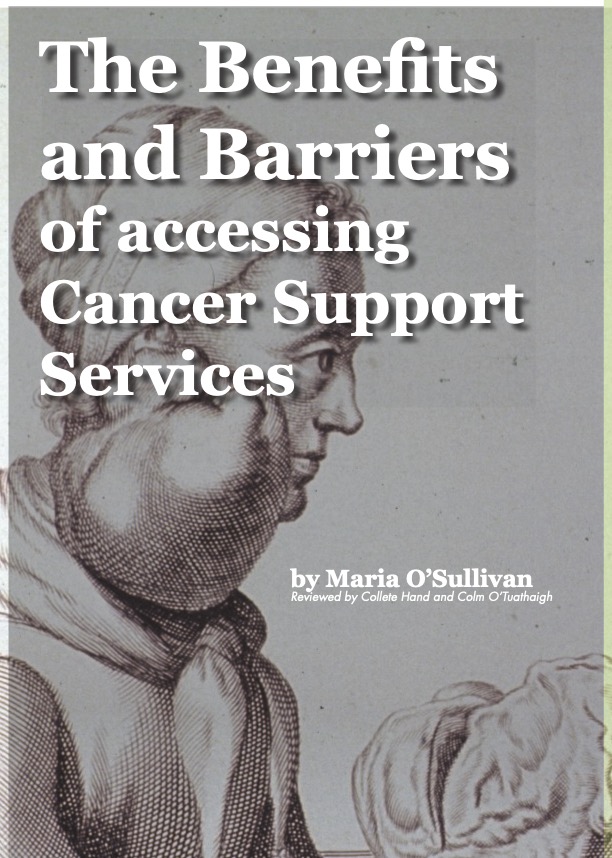The benefits and barriers of accessing cancer support services
DOI:
https://doi.org/10.33178/SMJ.2021.1.2Keywords:
cancer support services, accessing care, barriers to accessing careAbstract
Introduction
Cancer is a substantial cause of morbidity and mortality worldwide. In Ireland, rising cancer incidence means that the burden on society will continue to increase. Recent recognition of the large impact of psychological distress on patients with cancer has led to suggestions to use support centres to mitigate this distress. Thus, the benefits of participation and barriers to attendance must be explored.
Aims & Objectives
To systematically review scientific literature and determine the: (i) Sociodemographic composition of cancer support centres. (ii) Benefits of support services to patients with cancer. (iii) Barriers/facilitators to support centre attendance.
Methods
Electronic searches were carried out PubMed and the Cumulative Index
to Nursing and Allied Health Literature (CINHAL) databases using key words addressing the research question. Ten articles were selected and critically appraised.
Results
A summary of article results showed that while various groups remain underrepresented in support centres, new evidence suggests this may be changing. Increased support service attendance was linked to greater benefits. No change in anxiety or depression with attendance were seen. Barriers to attendance were identified.
Conclusions
The literature showed benefits to support services, but long term benefits must be further investigated. Future research quantitatively assessing benefits of support services, using validated assessment instruments are necessary. Psychological benefits of participation are still unclear. Validated questionnaires to assess the barriers to attendance must be developed. Lastly, there is a lack of studies on the benefits of and barriers to support services participation in the Irish population.
References
WHO Cancer Control Programme: World Health Organisation; [Cited 2018 Feb 23] [Available from: http://www.who.int/cancer/ en/.]
Vital Statistics Yearly Summary 2016 - CSO - Central Statistics Office: Central Statistics Office; [Cited 2018 Feb 23] [Available from: http://www.cso.ie/en/releasesandpublications/ ep/p-vsys/vitalstatisticsyearlysummary2016/.]
Cancer projections for Ireland 2015-2040 Cork: National Cancer Registry; 2014 [Cited 2018 Feb 23] [Available from: https://www.ncri.ie/sites/ncri/files/pubs/Cancer%20pro- jections%20for%20Ireland%202015%20- %20 2040.pdf.]
Inhestern L HA-C, Wlodarczyk O, Bergelt C. Psychosocial Interventions for Families with Parental Cancer and Barriers and Facilitators to Implementation and Use – A Systematic Review. PLoS ONE. 2016;11(6).
Helseth S, Ulfsæt N. Parenting experiences during cancer. Journal of Advanced Nursing. 2005;52(1):38-46.
Mehnert A, Berg P, Henrich G, Herschbach P. Fear of cancer progression and cancer-related intrusive cognitions in breast cancer survivors. Psycho-Oncology. 2009;18(12):1273-80.
Lee-Jones C, Humphris G, Dixon R, Beb- bington Hatcher M. Fear of Cancer Recurrence — A Literature Review and Proposed Cognitive Formulation to Explain Exacerbation of Recurrence Fears. Psycho-Oncology. 1997;6(2):95-105.
Sanson-Fisher R, Girgis A, Boyes A, Bonevski B, Burton L, Cook P. The unmet supportive care needs of patients with cancer. Cancer. 2000;88(1):226-37.
Harrison JD, Young JM, Price MA, Butow PN, Solomon MJ. What are the unmet supportive care needs of people with cancer? A systematic review. Supportive Care in Cancer. 2009;17(8):1117-28.
Chambers SK, Girgis A, Occhipinti S, Hutchi- son S, Turner J, Morris B, Dunn J. Psychological distress and unmet supportive care needs in cancer patients and carers who contact cancer helplines. European Journal of Cancer Care. 2012;21(2):213-23.
National Cancer Strategy 2017 - 2026: Department of Health; [Cited 2018 Feb 23] [Avail- able from: http://health.gov.ie/wp-content/ uploads/2017/07/National-Cancer-Strategy-2017-2026.pdf.]
Improving Supportive and Palliative Care for Adults with Cancer National Institute for Clinical Excellence; 2004 [Cited 2018 Feb 23] [Available from: https://www.nice.org.uk/ guidance/csg4/resources/improving-supportive-and-palliative-care- for-adults-with-cancer-pdf-773375005.]
Batenburg A, Das E. Emotional approach coping and the effects of online peer-led support group participation among patients with breast cancer: a longitudinal study. Journal of medical Internet research. 2014;16(11):e256.
Osei DK, Lee JW, Modest NN, Pothier PK. Effects of an online support group for prostate cancer survivors: a randomized trial. Urologic nursing. 2013;33(3):123-33.
Ussher JM, Kirsten L, Butow P, Sandoval M. A Qualitative Analysis of Reasons for Leaving, or Not Attending, a Cancer Support Group. Social Work in Health Care. 2008;47(1):14-29.
L. G. A critical appraisal tool for library and information research. Library Hi Tech. 2006;24(3):387-939.
Klemm P. Effects of online support group format (moderated vs peer-led) on depressive symptoms and extent of participation in women with breast cancer. Computers, informatics, nursing : CIN. 2012;30(1):9-18.
Emilsson S, Svensk AC, Tavelin B, Lindh J. Support group participation during the post-operative radiotherapy period increases levels of coping resources among women with breast cancer. Eur J Cancer Care (Engl). 2012;21(5):591-8.
Bjorneklett HG, Rosenblad A, Lindemalm C, Ojutkangas ML, Letocha H, Strang P, Bergkvist, L. Long-term follow-up of a randomized study of support group intervention in women with primary breast cancer. J Psychosom Res. 2013;74(4):346-53.
Stevinson C, Lydon A, Amir Z. Cancer support group participation in the United Kingdom: a national survey. Supportive Care in Cancer. 2011;19(5):675-83.
Sherman AC, Pennington J, Simonton S, Latif U, Arent L, Farley H. Determinants of participation in cancer support groups: The role of health beliefs. International Journal of Behavioral Medicine. 2008;15(2):92-100.
Grande GE, Myers LB, Sutton SR. How do patients who participate in cancer support groups differ from those who do not? Psychooncology. 2006;15(4):321-34.
Michalec B. Exploring the multidimensional benefits of breast cancer support groups. J Psychosoc Oncol. 2005;23(2-3):159-79.

Downloads
Published
License
Copyright (c) 2024 Maria O'Sullivan

This work is licensed under a Creative Commons Attribution-NonCommercial 4.0 International License.









